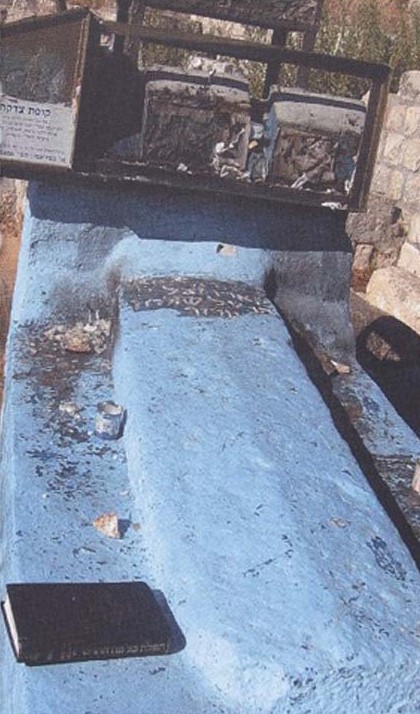Rav Yosef Karo zt"l
הרב יוסף בן אפרים קארו זצ"ל
Nissan 13 , 5335
Rav Yosef Karo zt"l
Rabbi Yosef Caro was born in Toledo, Spain in 1488. He was a small child when his family fled to Constantinople in 1492, after the Jews were expelled from Spain by Queen Isabella and King Ferdinand. His father, Rabbi Ephraim Caro, and his uncle, Rabbi Yitskhak Caro, both important scholars during their time, gave the youngster his Talmudic training.
Rabbi Yosef Karo arrived in Eretz Israel in 1535, after living briefly in Turkey. It is believed that he studied under Rabbi Yaakov bei Rav while in Egypt. After arriving in Tzfas, Rabbi Yosef Karo was appointed to the Beis Din of Rabbi Yaakov bei Rav, his teacher. Rabbi Caro supported his teacher and his attempts at restoring the ancient institution of semichah, authoritative rabbinical ordination and jurisdiction. Rabbi Caro was one of four rabbis who received semichah from Rabbi Yaakov. But other rabbis opposed his tradition and after the death of R' Yaakov in 1546 its use diminished.
Rabbi Yosef became the leader of the Tzfas Beis Din after the death of Rabbi Yaakov. It was probably the Beis Din held in highest regard throughout the world during its time. Its opinion was sought on difficult issues by rabbis from all over the world.
Rabbi Yosef also had a significant impact on shaping halachah, and his works are used today to decide many points of Jewish law. While living in Turkey, and for the next 20 years, he wrote a commentary to the Turim of Rabbi Yaakov ben Asher, which traces each ruling in Tur, to its Talmudic source and cites all other opinions relevant to the ruling and concludes with a decision. The commentary, called Beis Yosef, was finished in 1542. After some revisions, it was published in 1551. It was so well received it had to be reprinted.
Although Rabbi Yosef Karo wrote many famous works, he also wrote Kessef Mishneh, a commentary on Rambam's Mishneh Torah, which was another monumental work. Originally published in 1574, it has been published in almost every edition of Rambam.
As a person, this rabbi was humble, devout, gentle, and ascetic. He was a true kabbalist. Rabbi Caro died in 1575.
Source: The Early Acharonim, The ArtScroll History Series.
https://www.jewishgen.org/rabbinic/journal/halachah.htm
Stories of Rav Yosef Karo zt"l
Rav Yosef Karo had an angelic Maggid, who came and spoke to him, and taught him many deep, esoteric mysteries. These teachings are gathered in the sefer Maggid Meishorim. On Shavuos night, as he studied with Rav Shlomo Alkabetz, the mechaber of Lecha Dodi, the Maggid revealed itself and spoke through Rav Yosef Karo, saying that he was the angel of the Mishna, the Oral Law which Rav Yosef studied by heart.
Once, when the Bais Yosef sat and wrote his magnum opus on the Tur, the same angelic Maggid revealed to him previously in Saloniki reappeared to him again in Tzefas and Biriya, telling him that the souls of the Rambam and Ba’al HaTurim rejoiced in how his commentary elucidated their opinions and upheld their arguments and piskei halocha.
The Maggid praised the Bais Yosef’s halachic rulings as pure and faultless, promising him that he would merit spreading them across the entire Jewish world. “The Torah rejoices as on the day it was given on Har Sinai and I shall place you above my nation and exult and uplift you and your Yeshiva and its stature. You shall merit to see Eliyohu HaNovi face to face and to one day see your descendants in the Sanhedrin in the Lishkas HaGozis, teaching the laws of kemitza, because each Yeshiva and study hall here below has its corresponding counterpart in the Heavens above – and on high is where they are studying the Mesivta of Atik Yomin to which your Yeshiva corresponds.”
Indeed it is so, for no other author has even merited that his work on Shulchon Aruch should be considered as the basis of the code of Jewish law universally like the Shulchon Aruch, and no other author merited the appellation Maran, “our master”, the Mechaber, “the author”. (Moron, p. 177).


